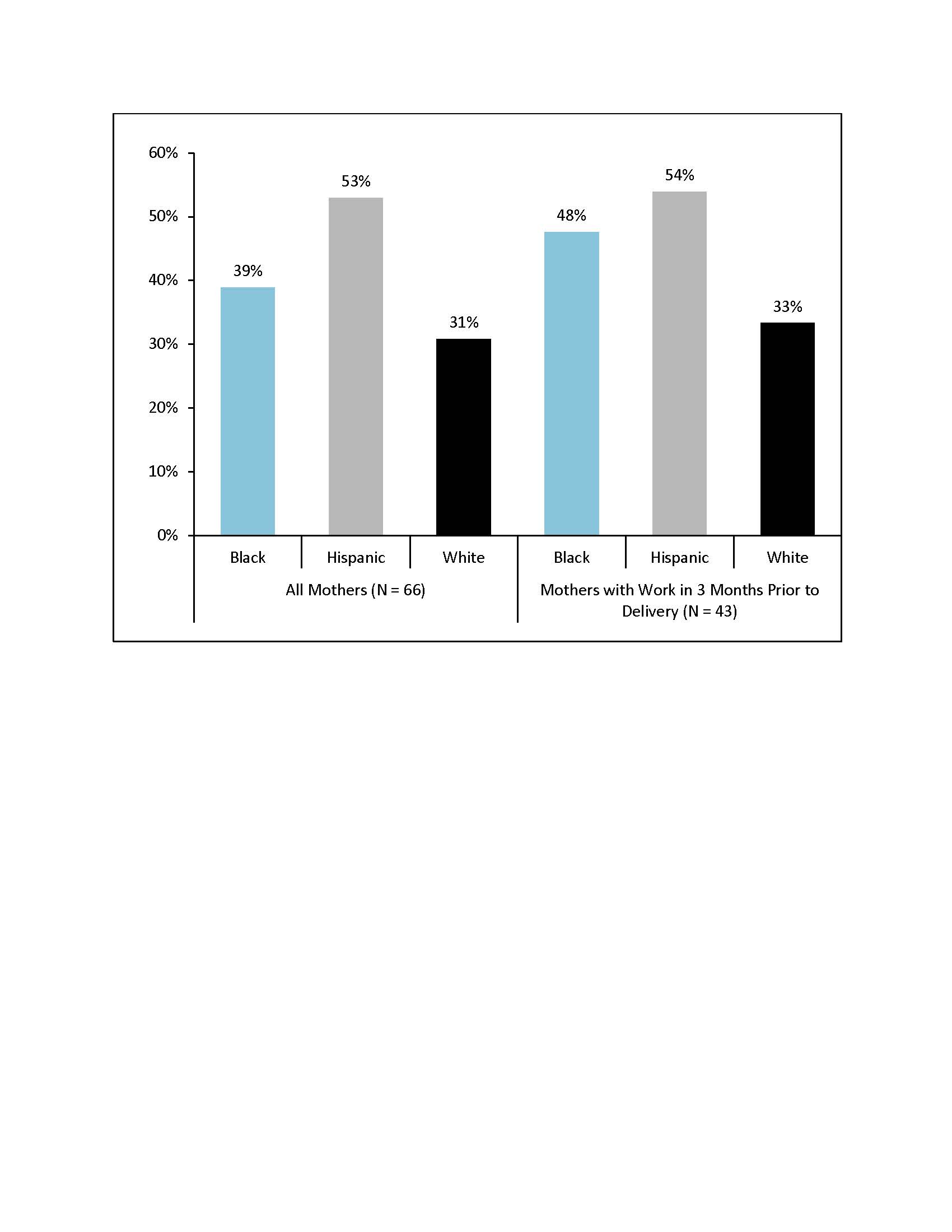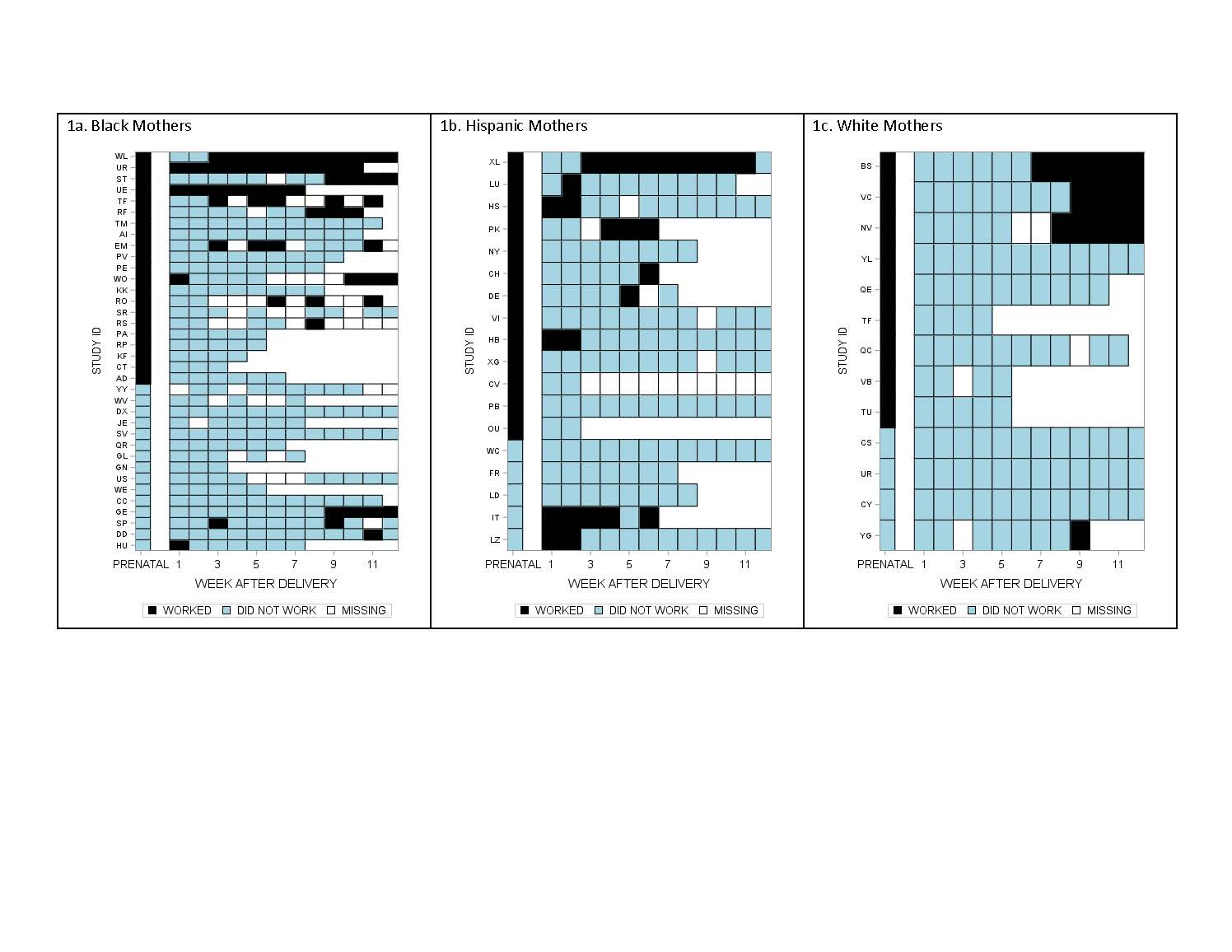Neonatal-Perinatal Health Care Delivery: Epidemiology/Health Services Research
Neonatal-Perinatal Health Care Delivery 1: Epi/HSR Equity
626 - Maternal Patterns of Work After Delivery of a Very Preterm Infant
Publication Number: 626.14
- TJ
Tricia J. Johnson, PhD (she/her/hers)
Professor
Rush University
Chicago, Illinois, United States
Presenting Author(s)
Background: The plethora of research linking maternal employment with a shortened duration of breastfeeding has focused almost entirely on healthy mother-infant dyads. However, mothers of very preterm (VPT; < 32 weeks gestational age) infants have different work patterns due to the unanticipated early delivery, including continuing to work during the infant hospitalization while delaying paid or unpaid time off work until neonatal intensive care unit (NICU) discharge. Little research has examined post-delivery work patterns for this vulnerable population, whose infants stand to benefit substantially from long-term receipt of maternal breastmilk.
Objective: (1) Examine maternal work patterns after delivery of a VPT infant, and (2) examine whether these patterns differ based on maternal race/ethnicity.
Design/Methods:
Data were collected prospectively as a part of the ReDiMOM (Reducing Disparity in Receipt of Mother’s Own Milk in Very Low Birth Weight Infants; R01 MD013969) randomized controlled trial and obtained via maternal self-report and the electronic medical record. Each week post-delivery through to NICU discharge, mothers reported whether they had worked the previous week. In this analysis, employment (working, not working) was examined through to NICU discharge or 12 weeks post-delivery, whichever occurred first.
Results: Of the 66 mothers in the sample, 55% were non-Hispanic Black, 26% Hispanic and 20% non-Hispanic White (Table 1). Overall, 41% worked at least 1 week during the infant’s NICU hospitalization (39% of Black mothers, 53% of Hispanic mothers, and 31% of White mothers; Figure 1). Of mothers who returned to work during their infant’s NICU hospitalization (N = 26), 58% worked in the first month after delivery. Patterns of work differed by maternal race/ethnicity, with a greater proportion of Black and Hispanic mothers cycling in and out of work compared to White mothers, particularly in the first month after delivery (Figure 2).
Conclusion(s):
Less than 50% of mothers of VPT infants in this sample worked during the first 12 weeks post-delivery. However, patterns of work varied by race/ethnicity, with none of the White mothers working during the first month post-delivery. There may be important racial/ethnic differences in work practices that could impact VPT infants through breastmilk provision and NICU visitation. Future research should rigorously examine post-delivery maternal work patterns and their effect on VPT infant health to ensure that policies and workplace practices optimally support this population of vulnerable mothers.

.jpg)
